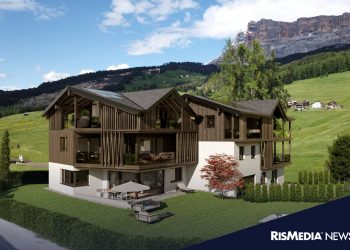(MCT)—Nicole Arseneau wants a sump pump installed to deal with her leaky basement. But she’s been waiting nearly a year for the go-ahead from the homeowners’ association at her small Bergenfield, N.J., town-house community.
Kate Conover had trees and shrubs removed from around her deck. Now she’s locked in a dispute with the homeowners’ association and manager at her Mahwah, N.J., town-house community about replacing them.
Marie Rubino loves her Wayne, N.J., town house, but the shrubs outside her front door keep dying, and the homeowners’ association isn’t doing enough to improve the landscaping.
There’s plenty to like about living in a condo, co-op or town house, including freedom from mowing the lawn and shoveling the snow. But homeowners also give up some of their rights to decide what to do with their property.
“If you do not like anybody telling you what to do, don’t move into a town house,” said Conover, a real estate agent.
And living in close quarters under a set of community rules can lead to clashes among homeowners and their neighbors, the homeowners’ association or the management company. Disputes often center on a handful of issues: noise, pets, subletting and damage to the homeowner’s unit, especially water damage.
“Noise is the No. 1 source of complaints,” says Eric Frizzell, a Glen Rock, N.J., lawyer who represents a number of homeowner associations. No one wants to hear a barking dog or the clomping of an upstairs neighbor who pulled up the carpet.
Disputes can become heated because they involve fundamental issues of “where people live and their enjoyment of their home,” said Felicia Farber, a Hackensack lawyer who often mediates disputes involving condos and town houses.
Problems like noise, damage or mold “directly affect the quality of people’s lives; it’s very emotional,” she says.
The potential irritants are many: A unit owner sublets to tenants who don’t take care of the property. The neighbor’s dog relieves itself in the hallway or on the lawn. Neighbors smoke at the pool or speed through the complex.
“You put a bunch of people on a small piece of property, and not everybody’s going to behave themselves,” says Gary Wilkin, president of the Wilkin Management Group in Mahwah, which has managed communities for almost 30 years.
Spending on maintenance is a frequent source of friction. Homeowners sometimes question whether the homeowners’ association board is spending money wisely and picking the best contractors. Some households are willing to pay higher monthly fees to upgrade the complex; others are determined to keep fees down, especially if they’re on fixed incomes or have faced financial setbacks.
“You and I may be neighbors. And I may want what I want and be willing to write that check, but you may say, ‘I don’t want to spend that money,’ ” Wilkin says. “The economy has come into the equation in the last few years.”
Homeowner associations have even been involved in constitutional issues. In two recent cases in New Jersey, homeowners said their associations were violating their free-speech rights by restricting the display of signs on their property.
In the most recent of these cases, involving a town house development in Parsippany, N.J., the state Supreme Court ruled that a homeowners’ association cannot ban signs put up by homeowners because that would violate their free-speech rights. That case involved a homeowner who ran for Township Council and put political signs in his windows.
One condo owner, Karen Levi of Ridge Gardens in Mahwah, says she was hit with an attorney’s bill for speaking up. She wrote a letter saying that the homeowners’ association’s president had no right to serve in that post because, she said, he no longer owned a unit in the complex. In response, the association’s lawyer billed her $290 for his time for reviewing her letter, she says.
“He had no right to send me a bill because I did not contract with him for any services,” saysLevi. When she complained to the attorney ethics board, she says, the attorney withdrew the bill. The management company for Ridge Gardens declined to comment, and the lawyer did not return calls seeking comment.
Arseneau and her father, Don, who owns her unit, say they have wanted to have a sump pump installed since the basement leaked during last year’s hurricane. They need permission from the homeowners’ association to have it installed because it involves work outside the unit. But the president of the association hasn’t responded to her calls and requests, Nicole Arseneau says. The president could not be reached for comment.
Conover, the real estate agent who lives in the Mahwah town-house community, said she was unhappy with the overgrown and unhealthy trees and shrubs around her deck, which she said led to the growth of mold and moss.
She says she offered to trim the trees and replace the shrubs at her own expense. When there was no response, she went ahead and had some shrubs removed, she said. Now, she’s been told that she must pay for new shrubs, but they will be chosen by the management company.
She is balking.
“Right now, we’re at a standstill,” she says.
Wilkin, whose company manages Conover’s town-house community, said that while he wasn’t familiar with the details of Conover’s situation, landscaping decisions are generally made by the association, not individual homeowners.
And he said the management company just carries out the association’s rules.
“The landscaping is controlled by the association,” Wilkin says. “When you live in a community, there has to be some semblance of order.”
©2012 The Record (Hackensack, N.J.)
Distributed by MCT Information Services










